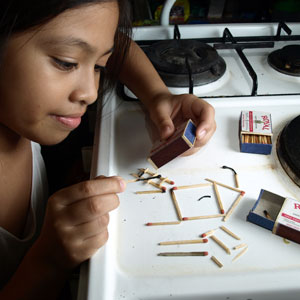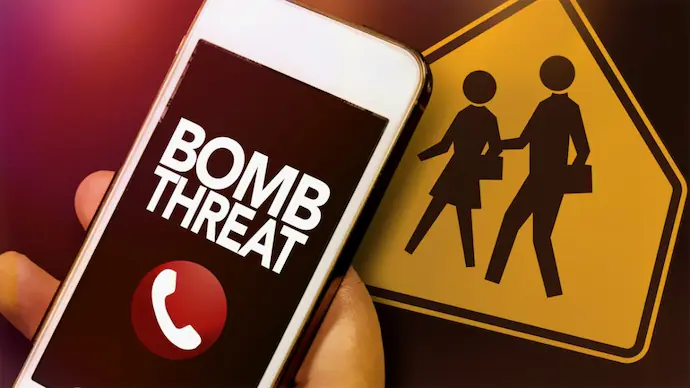Most of us consider our homes to be the safest place for our families—at least from fires. They ought to be because we spend most of our time here, retiring after a hard day’s work, or all of our time if we are home-based or our children are home-schooled.
Is your home fireproof? How do you make sure your physical space is safe from fire? What can you do to prevent a fire? We share these 10 simple tips:
1. Fire prevention in the kitchen: Almost half of all fires that happen in a home occur during cooking accidents. Never leave cooking unattended and especially avoid leaving children unattended in the kitchen when cooking. Keep matches out of reach and have all pot handles turned in so young kids will not reach them and have accidental spills. Also, keep your range clear of combustible objects such as clothes, newspapers, and curtains.
2. Safety during black outs: Especially during a typhoon, households may spend hours, even days without electricity. A majority of households uses candles for lighting during this time and is another major source of fires. Always make sure that candles are in proper candle-holders and must not be left with children or left unattended. Candles must be blown out when not needed anymore.
3. Smoking: Another obvious fire hazard is smoking. Cigarettes that are not put out properly are a source of fires. Have an accessible ashtray around and never throw a lighted cigarette in a trash bin. There may be paper or other flammable materials in the trash. Never smoke in bed, as you may fall asleep while smoking and set the furniture around on fire.
4. Looking out for children: Keep your children safe from possible fire hazards at all times. Make sure all flammable items are kept away from children. Matches, candles, household cleaners and other flammable liquids should be placed in an area where the kids cannot reach them.
5. Using electricity properly: Houses should be regularly inspected by an electrician to assure electrical circuits are in working order. Keep all appliances in good condition. Do not overload electrical sockets (i.e., placing too many plugs in one socket). Try to keep to one plug per electrical socket. Further, always be aware if there are any signs of loose wiring such as scorch marks, flickering lights, fuses that blow or circuit breakers that trip for no obvious reasons.
6. Use of water heaters: Use these portable heaters only as directed (i.e., minimum amount of water needed, maximum amount of time for single use) and never have the plug with water when in use. Make sure that portable water heaters are attended to.
7. Outside the house: Check the gutters for debris, especially dried leaves, from accumulating. This is a potential hazard especially when homes are in close proximity to each other. A fire may spread through this means. Gutters must be cleaned regularly.
8. Prepare and make an escape route: Preparation is always key. Remember where the fire escapes are in your house. If there is a lock on a fire escape, make sure that the keys are easily accessible for everyone in the household and should be near the fire escape. Keep all emergency exits clear of any obstructions like large furnishings or bookshelves. When exiting from a higher floor, lower yourself slowly, use bedding or cushion to break the fall and do not jump outright. More importantly, let everyone in the household know where the emergency exits are and teach them how to open it. Another crucial factor is knowing which fire safety equipment to use (i.e., fire extinguisher, smoke alarm), and knowing how to use it.
9. Develop good habits: Before going to bed, there are certain actions that you can do to keep your home safer from fires. Here are some items you can include in your checklist before hitting the sack: (a) close doors inside the house to prevent a fire from spreading; (b) turn off and unplug all electrical items that are not meant to stay on for more than a day; (c) place candles and matches in the proper storage areas; and (d) keep exits clear and have window and door keys accessible. Making fire safety checks regularly reduces the risk of fires happening inside a home.
It is always a good practice to have all hazardous materials and liquids out of reach of children and remember that prevention is key in saving life and property. •
10. Remember the emergency number: The international emergency number for mobile phones is 112. Even on vacation, this is the number that can be used anywhere in the world. This number can direct you for the local number to call. For Metro Manila residents, the emergency number is 117. When giving information, stay calm and be concise. Say there is a fire; give your name, street number and street name, barangay, city and a nearby landmark. After you have done so, act quickly and have everyone out as soon as possible.






